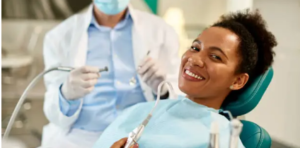A dental abscess is a painful bacterial infection that forms when bacteria build up in the gum tissue. It can cause severe toothache and requires urgent dental attention.
Ekta is a dentist who loves helping anxious patients and children with their dental needs. She also takes a keen interest in cosmetic dentistry and restorative work. For more information about dentist Hendon, check this out.
Preventive care
Preventive care refers to health services that improve health by reducing the likelihood of disease. These include medical and dental checkups, screening tests, vaccines, programs for health monitoring, and counselling and education. Preventive care also reduces costs by preventing diseases that caneventually lead to severe illness and premature death.
Most dental insurance plans cover preventive care to a certain extent. However, it is essential to review your plan to be sure. Some preventive dental services may require a deductible or coinsurance, while others are covered at 100%. It includes routine oral exams, teeth cleanings, and preventive X-rays. These procedures are often more cost-effective than repairing or replacing broken teeth.
Restorative care
The goal of restorative care is to improve a patient’s oral health and chewing function. It involves repairing and replacing damaged or missing teeth. It includes procedures such as fillings, root canals, dental bridges, crowns and dentures. These procedures are different from cosmetic dentistry, which focuses on significantly improving the appearance of a person’s smile.
 Restorative care is often used to help patients retain the skills they learned during physical rehabilitation and prevent declining quality of life. It also allows them to adjust to new or different levels of functioning after a traumatic injury or illness. Unlike physical rehabilitation, which licensed physical therapists perform, the evaluation and care of therapeutic care patients are usually provided by nurses. The nursing team may also apply braces, splints or wraps and provide orientation on how to use them. They may also offer guidance on completing activities of daily living, like bathing and grooming.
Restorative care is often used to help patients retain the skills they learned during physical rehabilitation and prevent declining quality of life. It also allows them to adjust to new or different levels of functioning after a traumatic injury or illness. Unlike physical rehabilitation, which licensed physical therapists perform, the evaluation and care of therapeutic care patients are usually provided by nurses. The nursing team may also apply braces, splints or wraps and provide orientation on how to use them. They may also offer guidance on completing activities of daily living, like bathing and grooming.
Cosmetic dentistry
Cosmetic dentistry is an effective method of professional oral care that focuses on making a patient’s smile more attractive. It largely follows the Greek view of beauty, which combines lines (symmetry) and the exact colouring and heights (harmony). While a beautiful smile can lead to new opportunities, it also helps with better health and self-esteem.
A standard cosmetic treatment is teeth whitening. It can brighten the teeth, remove stains caused by coffee, tea and berries, and give the smile a healthier appearance.
However, before undergoing any cosmetic procedure, treat any existing disease first. Moreover, it would be best if you had an excellent dental hygiene routine to ensure a healthy smile. It will prevent future problems and save you money on more expensive treatments. Other cosmetic treatments include adding or removing dental material – bonding, porcelain veneers, crowns – and reshaping the teeth and gum line – enameloplasty and gingivectomy. Besides, dental implants are used to replace missing tooth roots.
We will carefully conduct a comprehensive oral exam and X-rays to ensure you’re a good candidate for dental implants. We will also discuss your options for local anesthesia or sedation dentistry and estimated costs and treatment time. Your personalised treatment plan may include a consultation with a doctor who specialises in conditions of the mouth, jaw and face (oral and maxillofacial surgeon) or a dentist who specifically designs and fits artificial teeth (prosthodontist). We will also consult with a periodontist for the best care and maintenance of your implants.
A dental abscess is an accumulation of bacterial by-products and waste material that result from the multiplication of bacteria in the gums or inside a tooth. It builds up over time and can lead to a wide variety of symptoms, including pain in a specific area of the mouth (especially on biting or chewing), swelling, a foul smell, sensitivity to hot or cold, difficulty swallowing, fever, and in some cases, even airway compromise and death due to a hematogenous spread of infection into the brain.
